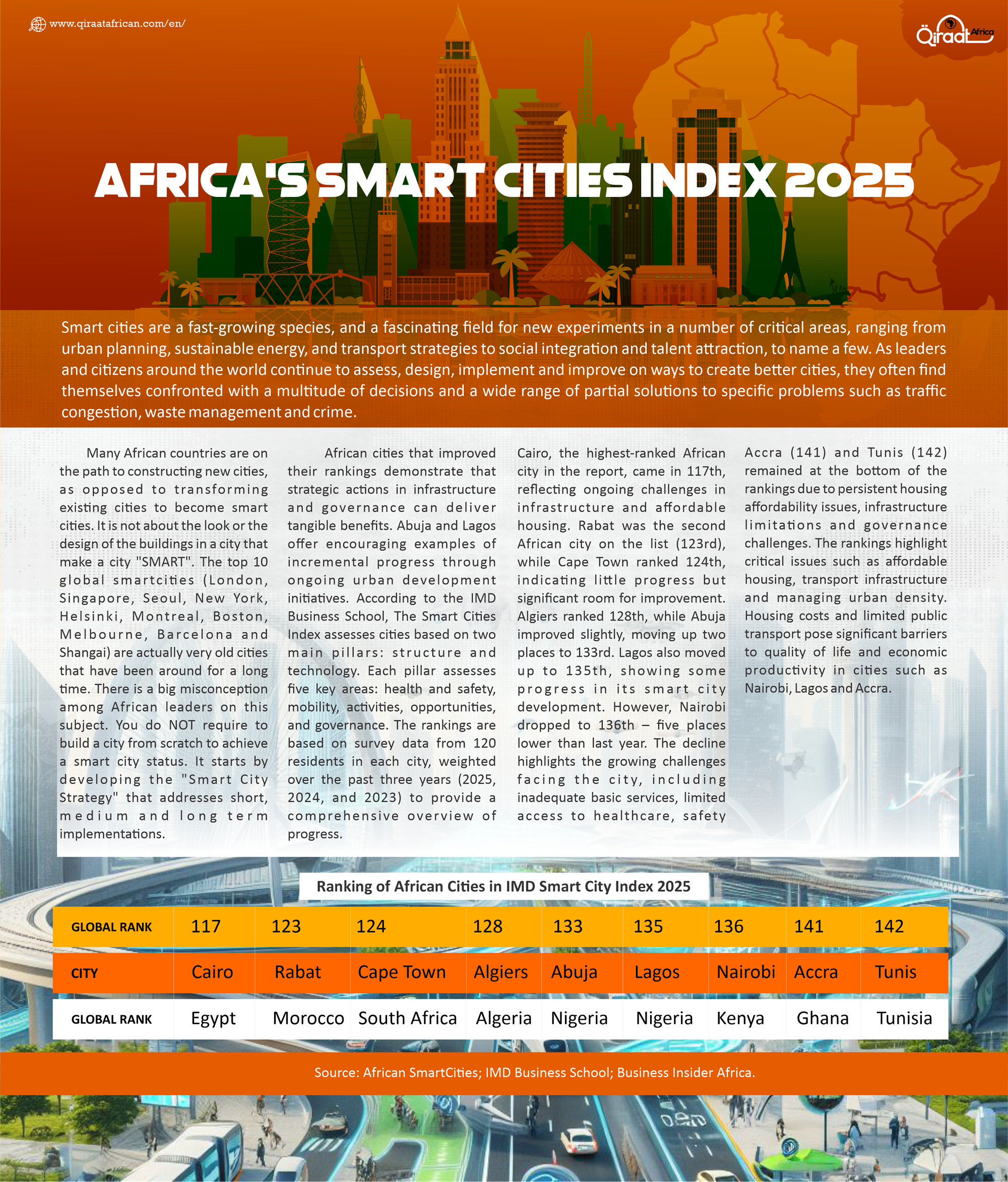Smart cities are a fast-growing species and a fascinating field for new experiments in a number of critical areas, ranging from urban planning, sustainable energy, and transport strategies to social integration and talent attraction, to name a few. As leaders and citizens around the world continue to assess, design, implement and improve on ways to create better cities, they often find themselves confronted with a multitude of decisions and a wide range of partial solutions to specific problems such as traffic congestion, waste management and crime.
Many African countries are on the path to constructing new cities, as opposed to transforming existing cities to become smart cities. It is not about the look or the design of the buildings in a city that makes a city “SMART”. The top 10 global smart cities (London, Singapore, Seoul, New York, Helsinki, Montreal, Boston, Melbourne, Barcelona and Shanghai) are actually very old cities that have been around for a long time. There is a big misconception among African leaders on this subject. You do NOT require building a city from scratch to achieve smart city status. It starts by developing the “Smart City Strategy” that addresses short-, medium- and long-term implementations.

African cities that improved their rankings demonstrate that strategic actions in infrastructure and governance can deliver tangible benefits. Abuja and Lagos offer encouraging examples of incremental progress through ongoing urban development initiatives. According to the IMD Business School, the Smart Cities Index assesses cities based on two main pillars: structure and technology. Each pillar assesses five key areas: health and safety, mobility, activities, opportunities, and governance. The rankings are based on survey data from 120 residents in each city, weighted over the past three years (2025, 2024, and 2023) to provide a comprehensive overview of progress.
Cairo, the highest-ranked African city in the report, came in 117th, reflecting ongoing challenges in infrastructure and affordable housing. Rabat was the second African city on the list (123rd), while Cape Town ranked 124th, indicating little progress but significant room for improvement. Algiers ranked 128th, while Abuja improved slightly, moving up two places to 133rd. Lagos also moved up to 135th, showing some progress in its smart city development. However, Nairobi dropped to 136th – five places lower than last year. The decline highlights the growing challenges facing the city, including inadequate basic services, limited access to healthcare, safety concerns and high unemployment.
Accra (141) and Tunis (142) remained at the bottom of the rankings due to persistent housing affordability issues, infrastructure limitations and governance challenges. The rankings highlight critical issues such as affordable housing, transport infrastructure and managing urban density. Housing costs and limited public transport pose significant barriers to quality of life and economic productivity in cities such as Nairobi, Lagos and Accra.
Ranking of African Cities in IMD Smart City Index 2025
| Global Rank | City | Country | Rating |
| 117 | Cairo | Egypt | CC |
| 123 | Rabat | Morocco | CC |
| 124 | Cape Town | South Africa | C |
| 128 | Algiers | Algeria | C |
| 133 | Abuja | Nigeria | C |
| 135 | Lagos | Nigeria | C |
| 136 | Nairobi | Kenya | D |
| 141 | Accra | Ghana | D |
| 142 | Tunis | Tunisia | D |
ــــــــــــــــــــــــــــــ
* Source: African SmartCities; IMD Business School; Business Insider Africa.


























































